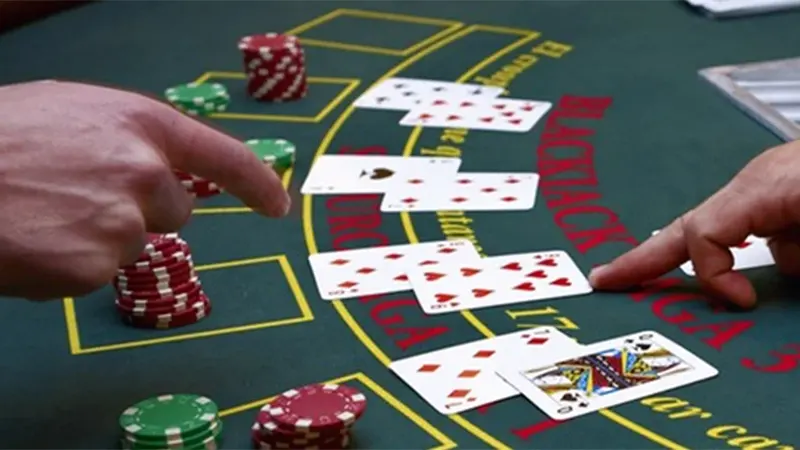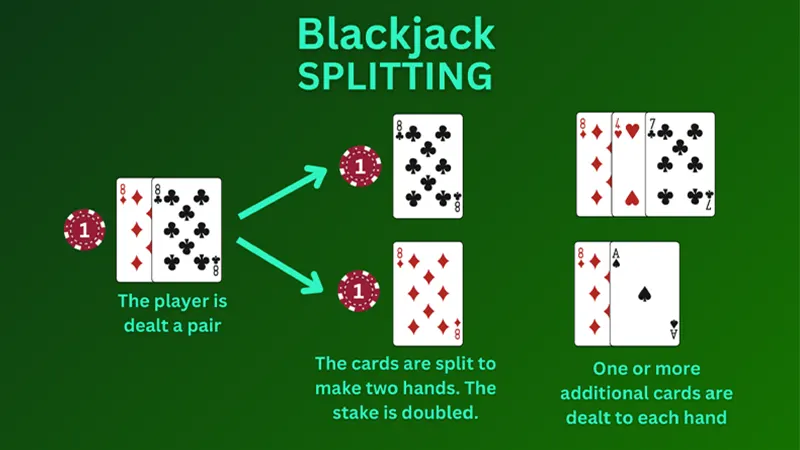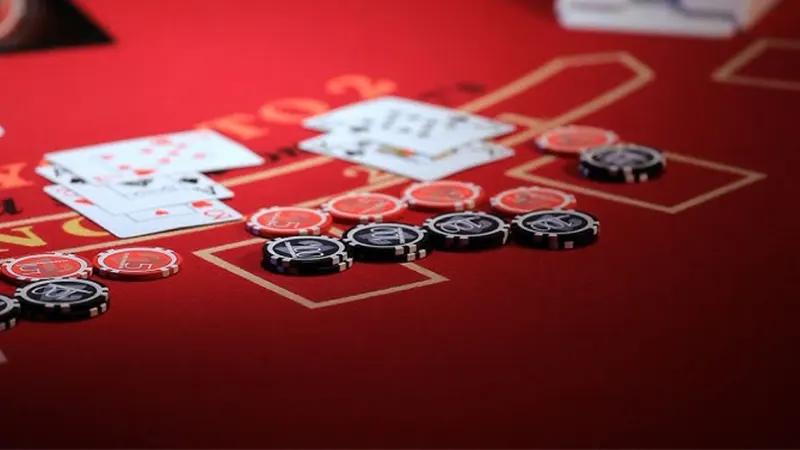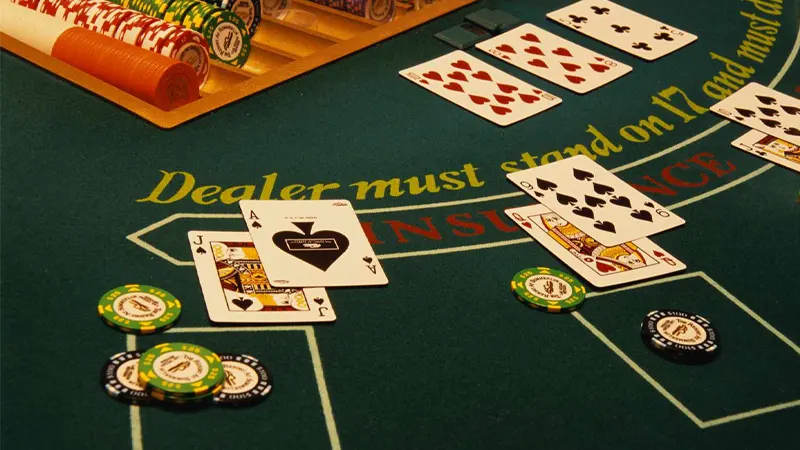Unlike slot machines where outcomes are purely random, blackjack offers players the power to influence their destiny through strategic decision-making. Every choice you make at the blackjack table directly impacts your chances of winning. A single wrong decision can double the house edge against you, transforming a favorable game into a losing proposition. 82 Lottery’s expert team has compiled this comprehensive guide to help you make optimal decisions in every blackjack scenario and significantly improve your winning potential.
Core Principles of Blackjack Decision Making
Successful blackjack strategy revolves around two fundamental factors that 82 Lottery emphasizes in all training materials: your hand’s total value and the dealer’s upcard. These elements work together to determine the mathematically optimal play for any given situation. By consistently making decisions based on these factors rather than intuition or superstition, you can significantly reduce the house edge and maximize your winning potential.
When to Hit: Maximizing Your Hand Value
Hitting means requesting another card from the dealer to improve your hand total. According to 82 Lottery’s analysis, you should hit when your hand value is low enough that drawing another card won’t risk busting, and when the dealer shows a strong upcard.
The optimal hitting strategy includes:
- Hit when your total is 12-16 and the dealer shows 7-Ace
- Always hit when your total is 11 or less (impossible to bust)
- Hit soft 17 (Ace-6) against dealer’s 9, 10, or Ace
The logic behind these decisions is straightforward: when the dealer shows a strong card (7-Ace), they’re likely to make a strong hand. You need to improve your weak total to compete, even if it means risking a bust.
When to Stand: Protecting Your Position
Standing means keeping your current hand total without drawing additional cards. 82 Lottery recommends standing when your hand is strong enough to potentially win, or when the dealer is likely to bust.

Key standing situations include:
- Stand on 12-16 when dealer shows 2-6 (dealer’s weak cards)
- Always stand on 17 or higher (except soft 17 in some cases)
- Stand on soft 18 against dealer’s 2-8
When the dealer shows weak cards (2-6), they must hit until reaching 17, creating a higher probability of busting. Your strategy should be to let the dealer take this risk while protecting your current position.
When to Double Down: Maximizing Profit Potential
Doubling down allows you to double your initial bet in exchange for receiving exactly one more card. This powerful option should be used when 82 Lottery’s probability analysis shows you have a strong advantage.
Optimal doubling situations:
- Double on 11 against dealer’s 2-10 (not Ace)
- Double on 10 against dealer’s 2-9
- Double on 9 against dealer’s 3-6
- Double soft 16-18 against dealer’s weak cards
The key to successful doubling is recognizing when you have a high probability of making a strong hand with one card, while the dealer is in a vulnerable position.
When to Split: Creating Multiple Winning Opportunities
Splitting allows you to separate identical cards into two separate hands, each with its own bet. Blackjack Basic Strategy from 82 Lottery identifies specific pairs that should always be split and others that should never be split.

Always split these pairs:
- Split Aces (creates two chances for blackjack)
- Split 8s (escapes the weak total of 16)
Never split these pairs:
- Never split 10s or face cards (20 is too strong to break up)
- Never split 5s (total of 10 is perfect for doubling)
Conditional splits depend on dealer’s upcard:
- Split 2s, 3s, 6s, 7s against dealer’s weak cards (2-7)
- Split 9s against dealer’s 2-9 (except 7)
The Complete Basic Strategy Table
82 Lottery’s comprehensive basic strategy table covers three main categories:
Hard Hands (no Ace or Ace counted as 1):
- Totals 5-8: Always hit
- Totals 9-11: Double against specific dealer cards, otherwise hit
- Totals 12-16: Hit against strong dealer cards (7-A), stand against weak (2-6)
- Totals 17-21: Always stand
Soft Hands (Ace counted as 11):
- Soft 13-15: Hit against most dealer cards
- Soft 16-18: Double against weak dealer cards when possible
- Soft 19-21: Always stand
Pairs:
- Follow the specific splitting rules outlined above
Practical Application Tips from 82 Lottery
Successful implementation of basic strategy requires discipline and practice. 82 Lottery recommends:
- Choose the right game variation: Single deck vs. multi-deck games have different optimal strategies
- Memorize gradually: Start with the most common situations and expand your knowledge
- Practice online: Use demo modes to build muscle memory before playing for real money
- Stay disciplined: Never deviate from basic strategy based on hunches or recent results
The most critical aspect is consistency. Every decision should be based on mathematical probability, not emotions or superstitions.

Common Mistakes to Avoid
82 Lottery has identified several critical errors that cost players money:
Strategy Errors:
- Partial memorization leading to incorrect decisions
- Confusing soft hands with hard hands
- Ignoring dealer’s upcard when making decisions
Emotional Mistakes:
- Increasing bets after winning streaks
- Changing strategy based on recent losses
- Taking “insurance” bets (generally unfavorable)
Bankroll Management Failures:
- Betting too large a percentage of bankroll
- Chasing losses with bigger bets
- Playing when tired or emotionally compromised
Integrating Strategy with Bankroll Management
Even perfect basic strategy means nothing without proper bankroll management. 82 Lottery advocates the 5% rule: never bet more than 5% of your total bankroll on a single hand. This conservative approach ensures you can weather short-term variance while the mathematical edge works in your favor.
Additional bankroll principles:
- Set win goals and loss limits before playing
- Divide bankroll across multiple sessions
- Take breaks to maintain focus and decision-making quality
Advanced Considerations
While basic strategy provides the foundation, 82 Lottery notes several advanced factors:
Game Variations:
- Dealer hits vs. stands on soft 17
- Surrender options when available
- Different payout rates for blackjack
Table Conditions:
- Number of decks in play
- Penetration (how deep into the shoe dealers go)
- Minimum and maximum bet limits
These factors can slightly modify optimal strategy, but the core principles remain consistent.
The Path to Mastery: 82 Lottery’s Recommendations
Becoming proficient at blackjack requires dedication and systematic practice. 82 Lottery suggests this progression:
- Study Phase: Understand the logic behind each decision
- Memorization Phase: Learn basic strategy until it becomes automatic
- Practice Phase: Play thousands of hands in demo mode
- Application Phase: Start with small bets and gradually increase
- Refinement Phase: Continuously analyze and improve your play
Remember that blackjack is a game of skill combined with controlled risk-taking. The goal isn’t to win every hand, but to make optimal decisions that maximize your long-term profitability.
Your Journey to Blackjack Excellence
Mastering when to hit, stand, double down, and split transforms blackjack from a game of chance into a contest of skill. While the basic strategy table isn’t magical, it represents decades of mathematical analysis and provides your best weapon against the house edge.
82 Lottery emphasizes that consistent application of these principles, combined with disciplined bankroll management, gives you the best possible chance of long-term success. Treat blackjack as entertainment first, and always remember that even optimal play doesn’t guarantee short-term wins.
The key to blackjack success lies not in predicting what cards will come, but in making mathematically sound decisions based on the information available. Study the strategies, practice diligently, and play with discipline – your bankroll will thank you for it.


